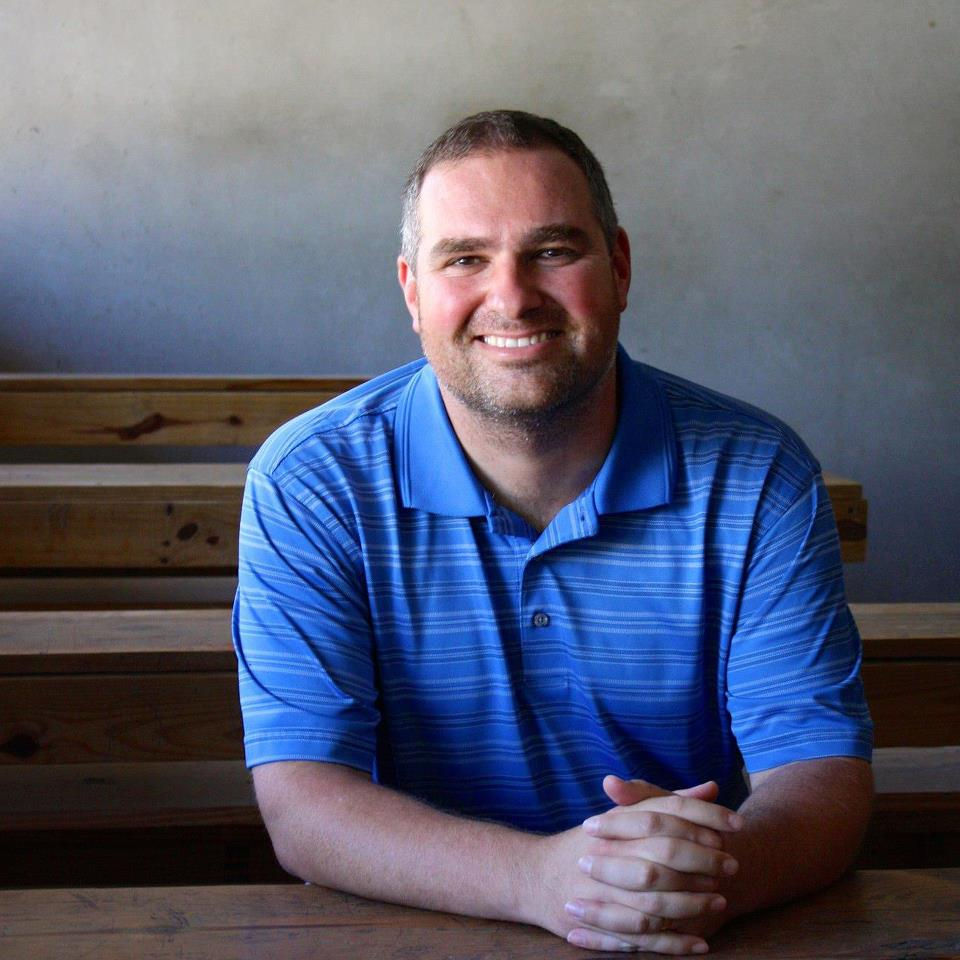NOTE: Of all the blogs I've written, this one is the third most popular, with more than 5,000 views. That makes me happy, because Brant Amerman deserves the recognition. He's a prince and a king, a helper and an educator, an encourager and friend. His and Autumn's story continued into college. Autumn decided to be an educator, and when she was asked to create a slide deck about her life, she featured Mr. Amerman. She graduated college, with honors, and now teaches special education. We, and the children whose lives she will touch, owe that to her.

MAY 2017 - When my baby girl walks across the graduation stage on May 20, Brant Amerman should be the man to hand the diploma to her.
No offense to the many teachers who have helped Autumn become the successful young lady she has become, they each played an important role in her education. But, looking back over 13 years of public school, plus a 14th year in St. Mary’s Pre-K program, Mr. Amerman is the stand out educator.
When Autumn was in Pre-K, she had three grand mal seizures back-to-back. I can count on one hand the number of times I’ve been that scared. The last seizure wouldn’t let go, so doctor’s used strong sedatives to put her in a coma to stop them. She woke up to a completely different world, filled with doctor visits in Atlanta, MRIs, scared parents and, eventually, a prescription for Keppra.
We were told at the time that Keppra had no known side effects. Three years later the FDA released a report with an exhaustive list of them. Autumn had nearly every one. The drug made her depressed. It slowed her learning ability. It likely caused her to have an attention deficit. Dark circles formed under her once-bright eyes.
She wrote about those days in a spoken word narrative assignment in high school. It still hurts to read it:

They thought that a young girl, a child, could just take a dose of what I now consider poison, and that would end the seizures, and it would fix me. But what doctors don't say, the side effects they don't talk about, are the ones that are overlooked, because it is deemed taboo when one talks about a child being depressed and wanting to off themselves, because they don't understand. They never talked about the torment. They never talked about the embarrassment. They never talked about the sadness, the deep aching pain that circulated through your body like blood, because children aren't supposed to be that way. They never told me that I would become a shell of my former self, that the girl who lived in this body before all that, would leave, and a girl who is unrecognizable would take her place. The girl that was once unafraid of the world and unafraid of her imagination, was now a girl that only saw the world in hues of gray and shades of black.
We quit giving Autumn that medicine when she was in the second grade, because of the side effects that would have ripples of influence for years to come. We had meetings with teachers every year, and every year we would hear well-meaning educators tell us they could pull Autumn out of art or music or recess to help her catch up. Because she struggled to learn, she hated math, science and English. Pulling her out of the classes she actually enjoyed, the classes where her talent could shine, where she felt “normal,” was not an acceptable solution. Enter Mr. Amerman in Autumn’s fourth grade year. He pulled us aside and told us he had watched her in class. He suspected she might have an attention deficit. He knew she had a medical history, and because of that history, she would likely qualify for a 504 plan. I had no idea what that meant. So, Mr. Amerman patiently explained that a 504 plan is named for the federal law that requires schools to make accommodations for children with a disability. He told us what to ask for and how to initiate the process. The red-tape hoop-jumping to gain approval for Autumn to be in the program was one of the most ridiculous exercises in bureaucracy I have ever experienced. I will never forget the district educator who, when I mentioned that Autumn had trouble with basic grammar and spelling, told us she could use spell check. I nearly came out of my chair. Any half-educated English speaker knows that Microsoft Word doesn’t know the difference between “there,” “their,” and “they’re.” She did not want to go there with me, a man who majored in communications and minored in English. With Mr. Amerman’s encouragement, we persevered, and Autumn got the extra help she needed. Slowly, but surely, she began to catch up. Her grades improved. Her mastery of language grew. By middle school she was among a group of students who could take foreign languages. In high school, she moved from college prep to college prep advanced classes. This, her senior year, she took Advanced Placement English Literature. And, now, she is getting ready to walk across the stage with a respectable grade point average, just a couple of points shy of being an honor graduate. She’ll be a college freshman this fall, and I have every reason to believe that she will thrive as she pursues a degree in veterinary medicine. Autumn worked hard. I’ve seen her cry over homework and struggle over assignments, but I’ve also read her essays and listened to her eloquent speech. We trace that success back to you, Brant Amerman. You did so much more than teach. You invested. Where some saw “challenged,” you saw potential. What some labeled “average,” you imagined extraordinary. And you were right. There were others who told us not to worry, that our girl would do well, and I am so appreciative of them. But, come May 20, between 10 a.m. and noon, I hope you know that when Autumn’s name is called and she reaches out her hand for her diploma, I will be cheering for her and thanking God for you, the difference maker.
Comments